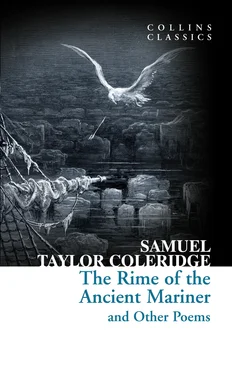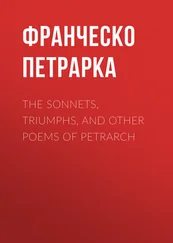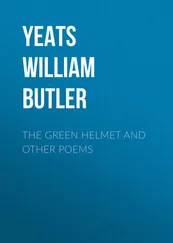In the late 1790s the two poets lived near each other in Somerset and would meet to discuss the purpose and potential of poetry. ‘Our conversations turned frequently on the two cardinal points of poetry,’ Coleridge wrote, ‘the power of exciting the sympathy of the reader by a faithful adherence to the truth of nature, and the power of giving the interest of novelty by the modifying colours of imagination.’ They determined to publish a joint collection of poems in which Coleridge would focus on ‘persons and characters supernatural’ while Wordsworth would celebrate ‘things of every day’. This project materialised in 1798 as Lyrical Ballads, an anthology that included some of the poems for which both men are now best known: Wordsworth’s ‘Tintern Abbey’ and Coleridge’s ‘The Rime of the Ancient Mariner’.
Lyrical Ballads is credited with bringing Romanticism to Britain. This movement was already flourishing in Germany, and it would ultimately dominate European artistic output until the mid-nineteenth century. Romanticism favoured emotion and imagination over reason and intellect, and tended to celebrate nature, heroism and spiritual experiences. Coleridge, Wordsworth, Southey and Lamb were soon joined by a younger generation of Romantics, including Keats, Byron and Shelley.
An Albatross Around His Neck
‘The Rime of the Ancient Mariner’, a ballad in seven parts, is Coleridge’s longest poem. The mariner of the title detains a man who is on his way to a wedding, and insists on recounting an increasingly terrifying tale of disaster upon the high seas. Gradually the wedding guest is drawn into the frenzied narration of this ‘grey-beard loon’, for it transpires that the disaster is entirely self-inflicted. Having been driven south by inclement weather, the mariner’s vessel is caught in Antarctic ice. The sudden appearance of an albatross – a symbol of good fortune – helps them escape, but then the mariner does something inexplicably ungrateful: ‘With my cross-bow / I shot the Albatross.’
Before long this crime is roundly avenged. The ship finds itself trapped once again, this time on calm, windless waters near the equator, and supplies quite literally dry up: ‘Water, water, every where, / Nor any drop to drink.’ The sailors rightly blame the mariner for his inauspicious murder of the albatross, and hang the bird about his neck as a sign of his disgrace. The arrival of another ship only compounds the horror, manned as it is by Death and Life-in-Death. They kill the crew but the mariner is forced to spend seven days and nights in a waking, raving nightmare. He eventually understands that it is his eternal curse and punishment to travel from ‘land to land’ recounting his ‘ghastly tale’.
The poem baffled many contemporary readers, and even Wordsworth later wrote that, for all its ‘delicate touches of passion’ and ‘felicity of language’, it nevertheless had ‘great defects’. For an 1817 reprint, in response to criticism that the poem was hard to follow, Coleridge added dozens of marginal notes explaining the plot: ‘The ancient Mariner inhospitably killeth the pious bird of good omen.’
Many of Coleridge’s poems display a visionary quality that borders on the hallucinogenic, and this is no coincidence. He had since his childhood suffered from health troubles whose symptoms were eased by opium, but by adulthood Coleridge had developed a powerful addiction to the drug that would plague the remainder of his life. He famously composed the vividly exotic ‘Kubla Khan’ in a fevered state after waking from an opium dream. This poem, like the supernatural ‘Christabel’, was never completed.
As he fell further into what he called his ‘accursed habit’ and its attendant depression, Coleridge’s life and work suffered considerably. In 1808, he finally separated from his long-suffering wife, leaving her and their three surviving children in the care of Robert Southey. By 1810 Wordsworth had become so frustrated by Coleridge’s addiction that the two poets fell out, remaining estranged for over a decade.
Coleridge spent the last eighteen years of his life at the London home of a physician friend, James Gilman, occasionally lecturing on Shakespeare and other poets and repeatedly attempting to give up his opium habit. He died in 1834.
PART I:
THE RIME OF THE ANCIENT MARINER
PART I
It is an ancient Mariner,
And he stoppeth one of three.
‘By thy long grey beard and glittering eye,
Now wherefore stopp’st thou me?
An ancient Mariner meeteth three Gallants bidden to a wedding-feast, and detaineth one.
The Bridegroom’s doors are opened wide,
And I am next of kin;
The guests are met, the feast is set:
May’st hear the merry din.’
He holds him with his skinny hand,
‘There was a ship,’ quoth he.
‘Hold off! unhand me, grey-beard loon!’
Eftsoons his hand dropt he.
The Wedding-Guest is spell-bound by the eye of the old seafaring man, and constrained to hear his tale.
He holds him with his glittering eye—
The Wedding-Guest stood still,
And listens like a three years’ child:
The Mariner hath his will.
The Wedding-Guest sat on a stone:
He cannot choose but hear;
And thus spake on that ancient man,
The bright-eyed Mariner.
‘The ship was cheered, the harbour cleared,
Merrily did we drop
Below the kirk, below the hill,
Below the lighthouse top.
The Sun came up upon the left,
Out of the sea came he!
And he shone bright, and on the right
Went down into the sea.
The Mariner tells how the ship sailed southward with a good wind and fair weather, till it reached the line.
Higher and higher every day,
Till over the mast at noon—’
The Wedding-Guest here beat his breast,
For he heard the loud bassoon.
The bride hath paced into the hall,
Red as a rose is she;
Nodding their heads before her goes
The merry minstrelsy.
The Wedding-Guest heareth the bridal music; but the Mariner continueth his tale.
The Wedding-Guest he beat his breast,
Yet he cannot choose but hear;
And thus spake on that ancient man,
The bright-eyed Mariner.
‘And now the Storm-blast came, and he
Was tyrannous and strong:
He struck with his o’ertaking wings,
And chased us south along.
The ship driven by a storm toward the south pole.
With sloping masts and dipping prow,
As who pursued with yell and blow
Still treads the shadow of his foe,
And forward bends his head,
The ship drove fast, loud roared the blast,
And southward aye we fled.
And now there came both mist and snow,
And it grew wondrous cold:
And ice, mast-high, came floating by,
As green as emerald.
And through the drifts the snowy clifts
Did send a dismal sheen:
Nor shapes of men nor beasts we ken—
The ice was all between.
The land of ice, and of fearful sounds where no living thing was to be seen.
The ice was here, the ice was there,
The ice was all around:
It cracked and growled, and roared and
howled,
Like noises in a swound!
At length did cross an Albatross,
Thorough the fog it came;
As if it had been a Christian soul,
We hailed it in God’s name.
Till a great sea-bird, called the Albatross, came through the snow-fog, and was received with great joy and hospitality.
It ate the food it ne’er had eat,
And round and round it flew.
The ice did split with a thunder-fit;
Читать дальше












